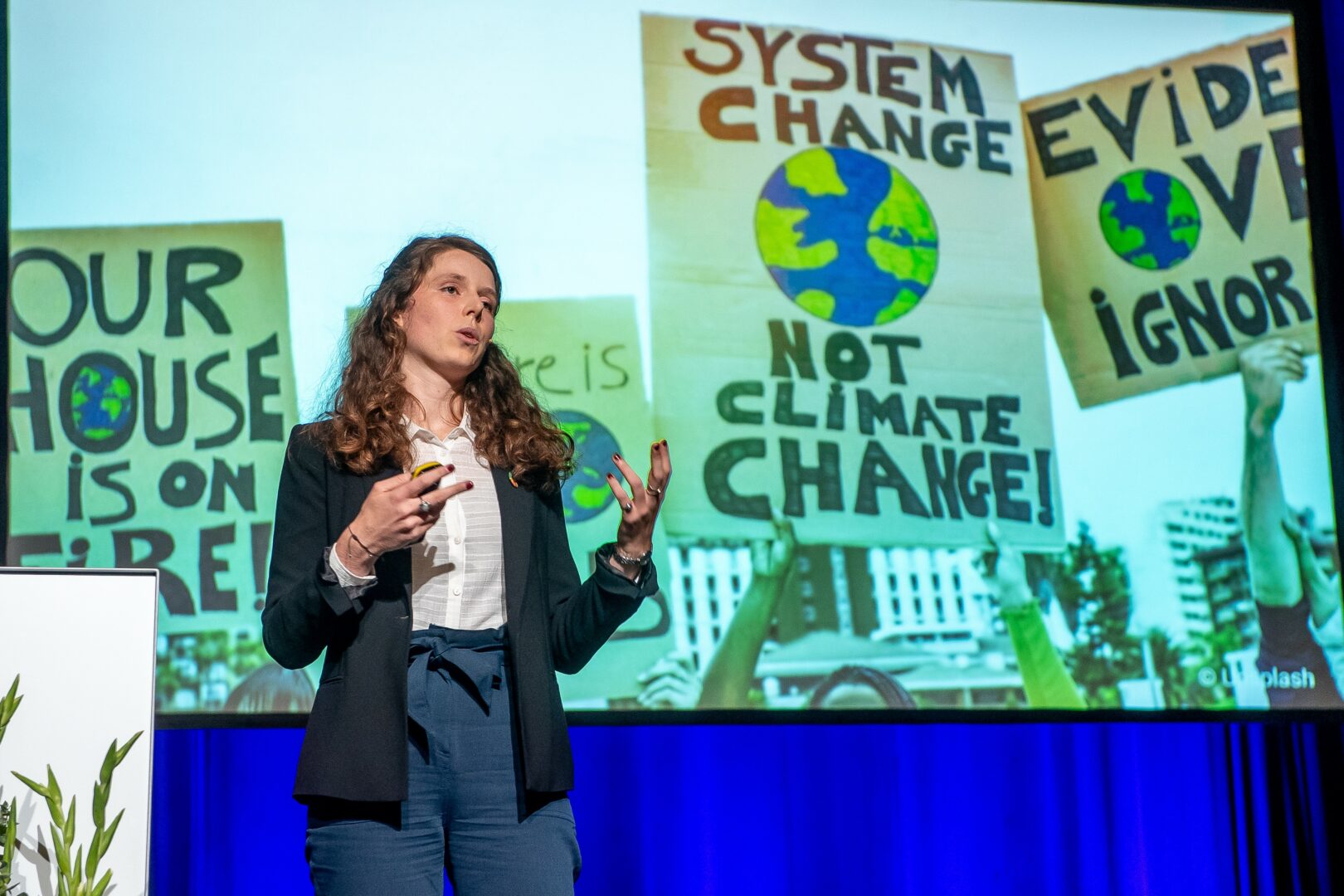We caught up with the brilliant and insightful Nora Wilhelm a few weeks ago and have shared our conversation below.
Hi Nora, really happy you were able to join us today and we’re looking forward to sharing your story and insights with our readers. Let’s start with the heart of it all – purpose. How did you find your purpose?
I see purpose as a cyclical process. First, there needs to be some kind of fertile ground. A supportive context, our basic needs met, a predisposition for empathy, care and justice… And then a seed is planted. As it takes root and a seedling grows, we begin to take action, create new projects, begin a new chapter in our career or volunteer engagement. Eventually, our work bears fruits in the forms of impact or results, but also learnings and new insights, which we can harvest, and hopefully celebrate. From there, there eventually comes a time to plant seeds again.
For me, the first key seeds were realising how much pain and destruction there is in the world. When I was just 15 years old, I found out about the Rwanda genocide, about deforestation in the Amazon, and about what happens behind closed doors in slaughter houses. Out of my heartbreak grew the first seedling of purpose, and I spent the next 5+ years dedicated to making a difference, primarily by working with other young people to participate in society, volunteer, and shape the policies that will determine our future.
Eventually, these efforts bore fruits, including the insight that the challenges we are facing are much more entrenched than I first thought. That just motivating more people to care or get involved is not the solution to ecosystem collapse, rising inequity, and wars. Although the dimension of our personal choices and engagement is important, our approach to the issues we are facing needs to go beyond. That is when a new seed was planted, and I started to work on systems change. I created an NGO called collaboratio helvetica, which was focused on advancing systems change towards the Sustainable Development Goals in Switzerland. After burning out in 2022, I then left the organisation to begin a new chapter, equipped with all this experience taught me.
From there, I created the well • change atelier in June 2023. It arose from my realisation that we as changeworkers also need to look at ourselves in order to be able to do this work sustainably and for a long time. I realised that spaces for creative self-expression are incredibly important in order to find yourself again and again and recharge your batteries. That’s why, at the well, we offer different art-based practices, such as working with clay, painting, writing, dancing, and more.
I did not stop caring about systems change however. The next cycle there began in early 2024, when I started dreaming about and building my next project in the space: Parayma. What I’m creating now is a series of offerings, spaces, and resources to support changeworkers at different stages of their journey.
Some are still searching for their unique contribution to the co-creation of a just and regenerative future. Others have already found their path, but keep running into obstacles—realising that their current tools and strategies aren’t enough to create the kind of change they envision. That’s where systems change approaches can open up new possibilities. And then there are the seasoned systems change leaders—those who’ve been in the work for a while and are navigating the ongoing challenges of underfunding, pushback from entrenched power, and the ever-present risk of burnout.
Parayma is the support hub I’m building for all of them. A place where changeworkers can find fresh insight, peer connection, renewed hope, and space to recharge. It’s also a space for honesty—where we don’t shy away from the hard conversations or the more painful aspects of doing this kind of work.
That is where I am at now. And I have no doubts that as I do this work and learn from it, it will eventually be time to plant new seeds again.
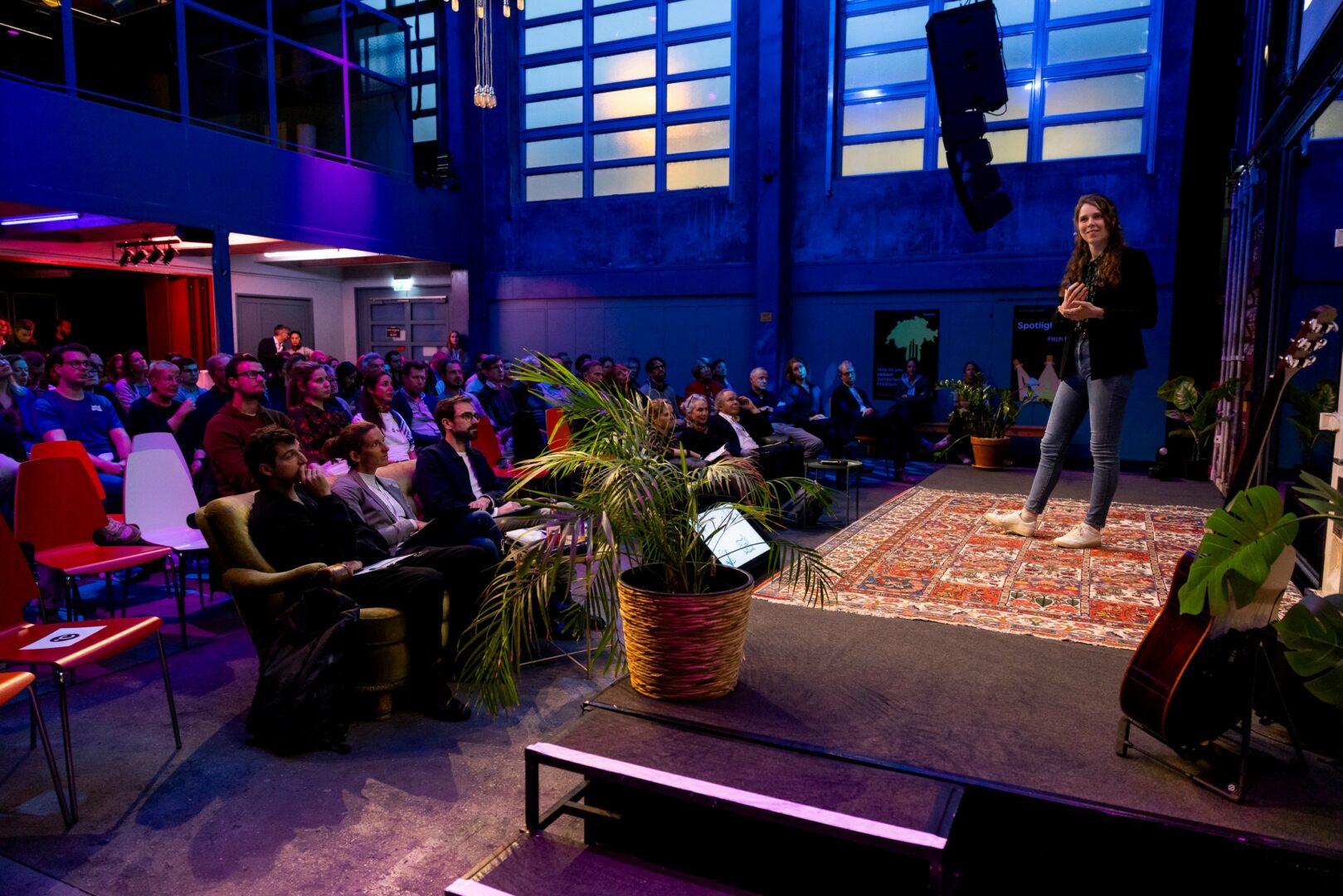
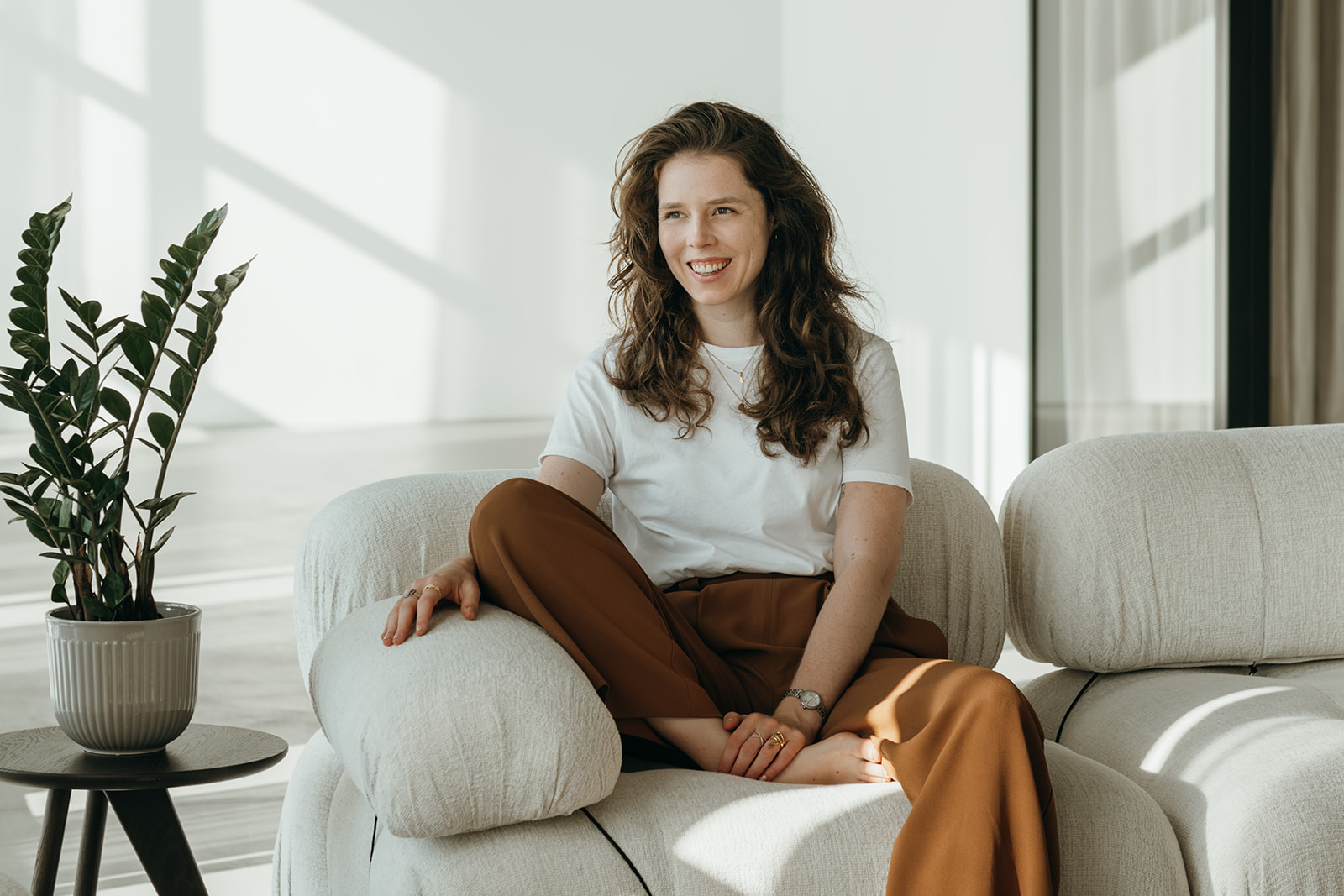
Let’s take a small detour – maybe you can share a bit about yourself before we dive back into some of the other questions we had for you?
With Parayma, I am supporting changeworkers (aspiring) systems change leaders at different stages of their journey.
Some are still searching for their unique contribution to the co-creation of a just and regenerative future. Others have already found their path, but keep running into obstacles—realising that their current tools and strategies aren’t enough to create the kind of change they envision. That’s where systems change approaches can open up new possibilities. And then there are the seasoned systems change leaders—those who’ve been in the work for a while and are navigating the ongoing challenges of underfunding, pushback from entrenched power, and the ever-present risk of burnout.
Parayma is the support hub I’m building for all of them. A place where changeworkers can find fresh insight, peer connection, renewed hope, and space to recharge. It’s also a space for honesty—where we don’t shy away from the hard conversations or the more painful aspects of doing this kind of work.
On the side, I continue to run the well • change atelier to support the givers of this world in taking better care of themselves. Our ateliers range from Empowerment through Embodiment, which is dance-based, to guided Envisioning workshops that take you through a process akin to creating a vision-board, except on a much deeper level. It’s important to me to continue to talk about the importance of filling our own cups as we care for others and the world, as I would not wish what I went through in terms of mental health struggles on anyone.
I also act as a speaker on global stages and private events across the world and sectors, where my focus is usually on advocating for a systems change approach, one where we address the root causes rather than fight the symptoms. Occasionally, I will accept a bigger consulting project, for instance for a values-aligned NGO, foundation, business or political party. When time allows, I write poetry and make music. Weaving more art and creativity into my daily life continues to be one of my priorities and I am very upfront about being a work in progress.
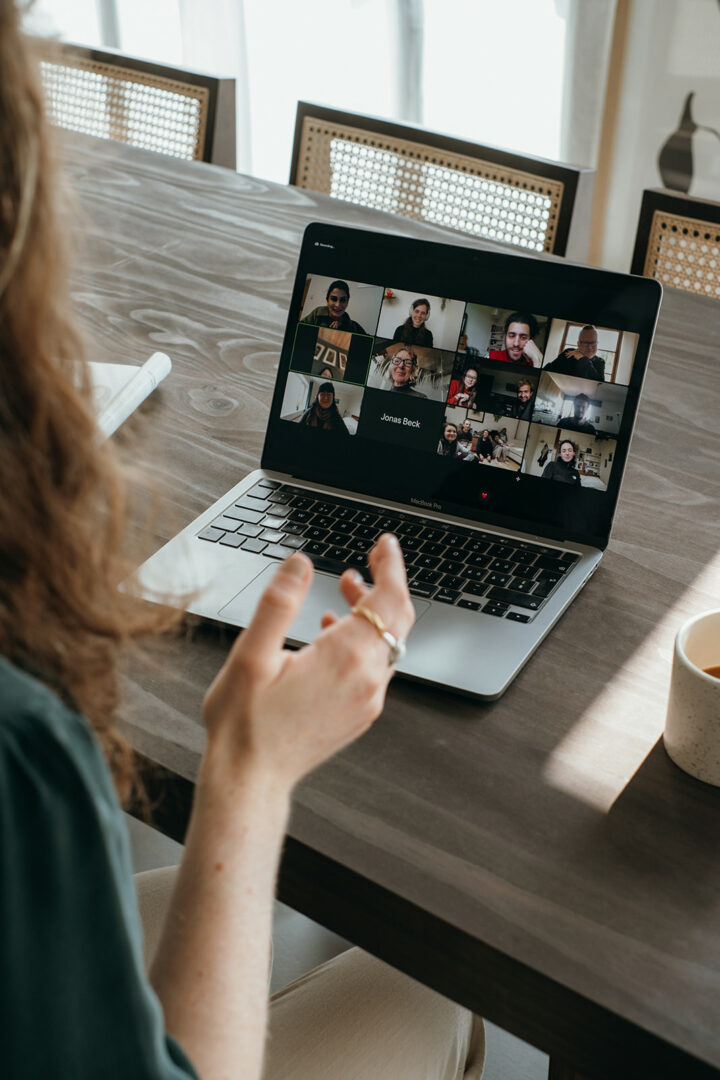
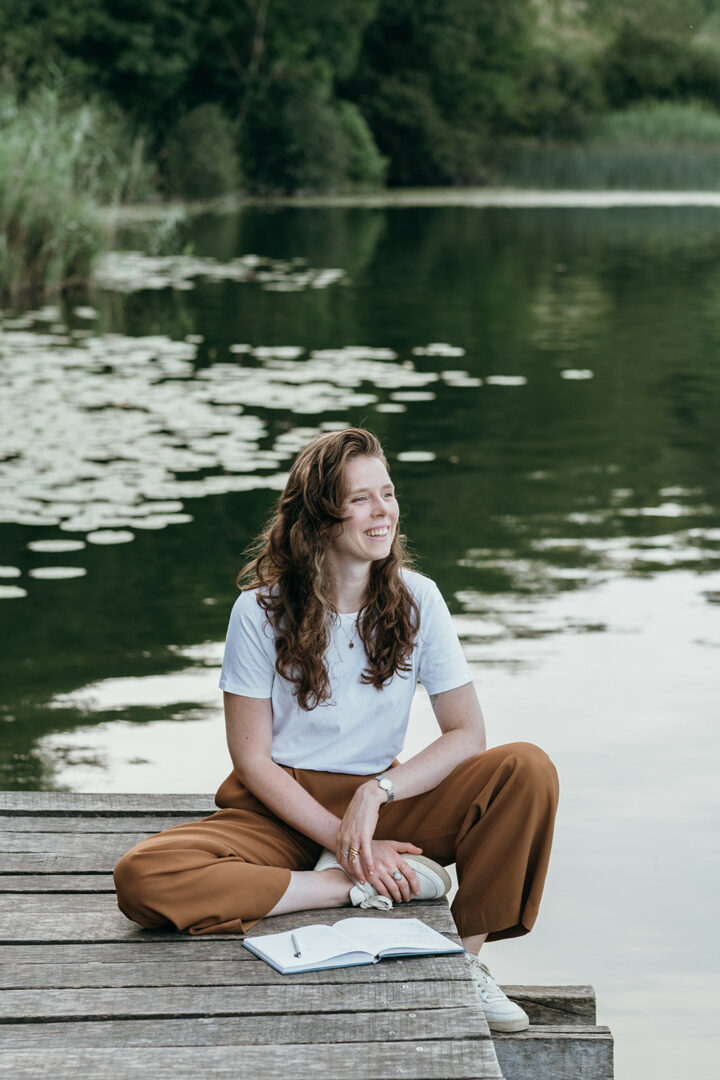
If you had to pick three qualities that are most important to develop, which three would you say matter most?
When I was six, my family moved from the German speaking part of Switzerland to Geneva, where we speak French. Well I didn’t, not a word in fact. The experience of being surrounded by other children, and adults, with whom I could not communicate and who could not communicate with me, shaped me deeply. It gave me an embodied understanding of the fact that we all have completely different inner worlds and perspectives, and a deep wish to understand and be understood. I believe this played a role in my ability to listen, to have empathy with others, and to build bridges. For folks early in their journey, I would recommend immersing yourself in different worlds, whether by living in a part of the world where you don’t speak the language or by reading fantasy books. Practice deep listening whenever possible, and begin to unlearn that what you have been taught is ‘normal’ is the norm. Curiosity is your greatest ally.
The second thing that comes to mind is related to this, namely the ability to think critically and question the status quo. Whenever you wonder why something is done a certain way, and the response is nothing more sensible than ‘it’s how we’ve always done it’ (which usually isn’t true any way) that should be enough to ring an internal bell. I would often get in trouble for this as a child, but truly questioning things and seeing potential for doing it better is the mark of a leader. Teaching blind following and submission in our children is literally how we create people who are later on easy prey for conspiracy theories, bullies like Andrew Tate or fascists. I think anyone can practice thinking more critically and with an orientation to potential by simply wondering, what would be a more just, kind, sustainable, or beautiful way of doing this? And if you see a window of opportunity, or something inspires you, explore further!
And lastly, crucially: a bias towards action. Everyone has opinions. Most people have ideas. Few people ever take action. If you see something that bothers you, speak up. If you think something could be solved in a better way, offer to do it. If you think the world needs more art, make it. If you think your country needs better politicians, run for office. I’m not saying that each of us has to do EVERYTHING about every single thing we notice that isn’t right. No, we do need to pick our ‘battles’ and prioritise where we can truly contribute. But the mark of a changeworker, of a leader, is not only seeing something (either something wrong or a potential for improvement), but stepping into action. Taking responsibility, not waiting for someone else to come around and save the day, certainly not sitting around and complaining whilst doing nothing about the situation. The good news is that action confidence can totally be built, and it is built over time. So what anyone can start doing today is whenever you notice something, even something small, do something about it. Trash on the floor? Pick it up, maybe you’ll compel another person to think twice before littering. Annoyed at all the single use coffee cups? Carry your own reusable cup, maybe you’ll inspire the next one to do so too. Racist person ranting on the bus? Speak up, you may just give someone courage to do so next time. You never know what ripple effects your actions have, we all have so much more power than we realise. And before you know it you will feel confident to act on even bigger challenges, creating even bigger ripples of change.
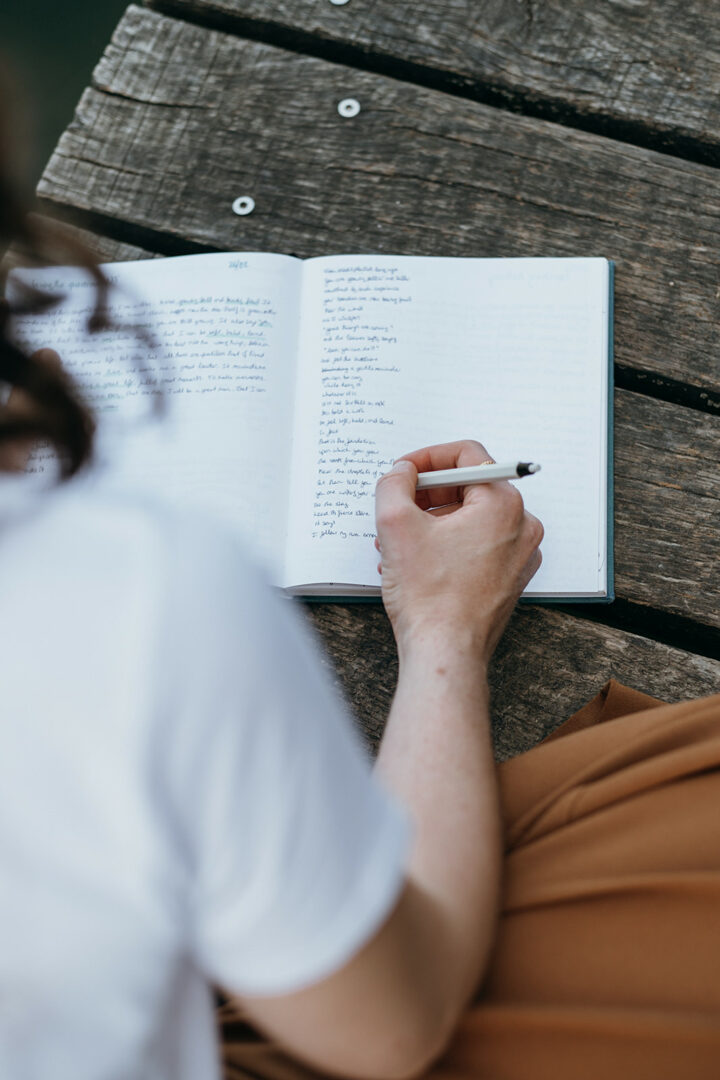
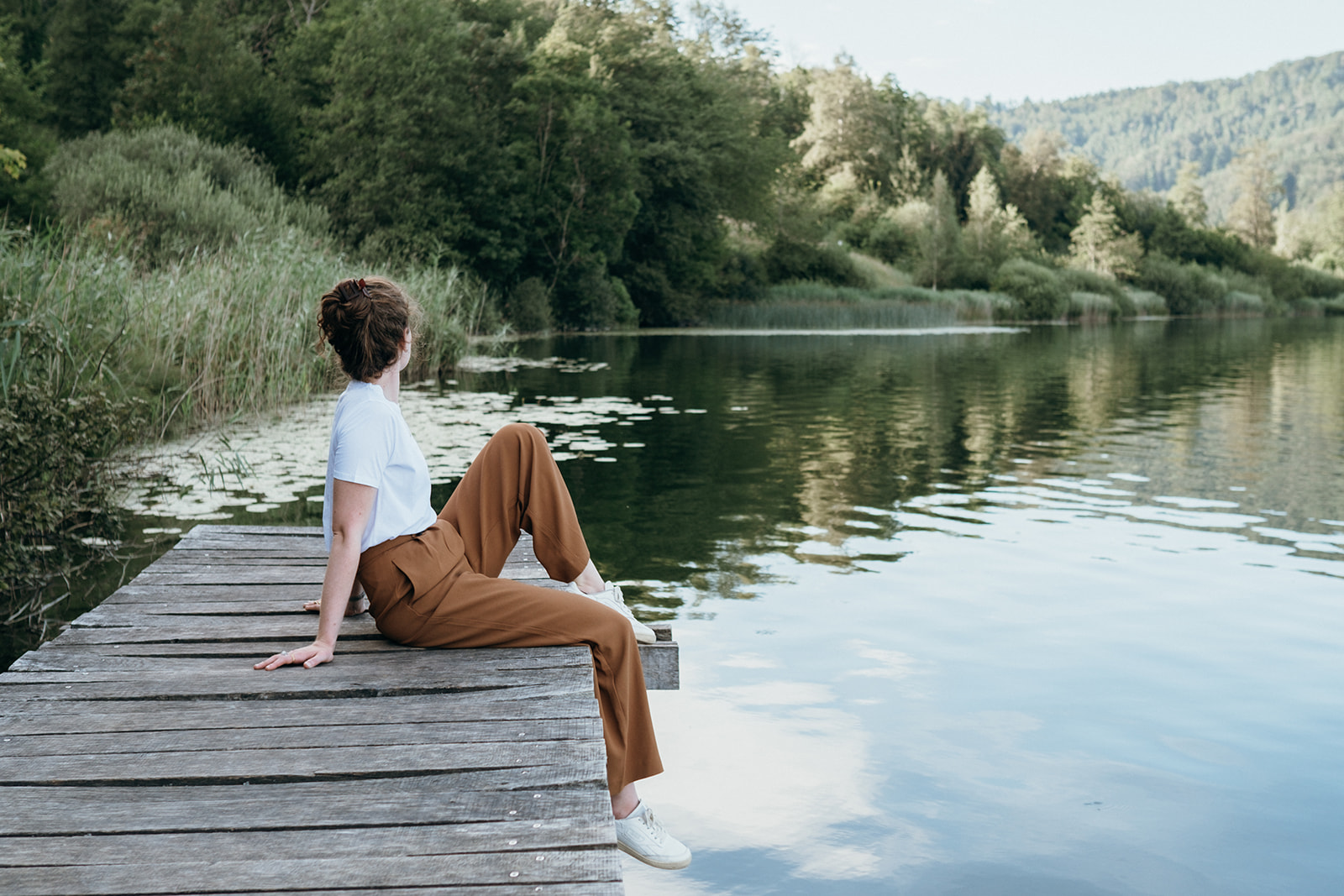
Before we go, maybe you can tell us a bit about your parents and what you feel was the most impactful thing they did for you?
My parents were not particularly wealthy. All our holidays were camping in the neighbouring countries, with an old van we shared with another family. I later on found out that there were times when money was really tight. But they never gave me the feeling of lack. I was safe, cared for, and had the opportunity to explore and develop without restrictions being placed on me. I remember my parents telling me that I could be anything I wanted to be. This internal feeling, that I could do anything I set my mind to, has been essential in my path, and I think that is the most impactful thing my parents ever did for me. If they would instead have projected on me own fears of inadequacy or limitations, as other parents do to their children, I may not have dared to speak up in the face of injustice. I may not have dared to chart my own path, defying norms and not playing by societal rules. Granted my path ended up being a bit more ‘out there’ than my parents expected perhaps, and they also weren’t thrilled when I came home announcing I was now a vegetarian at age 16, but still, they instilled in me the trust and confidence that I have agency. That there are many possibilities, and I can shape the future.
Contact Info:
- Website: https://www.norawilhelm.org
- Instagram: https://www.instagram.com/nora.wilhelm/
- Facebook: https://www.facebook.com/nora.m.wilhelm
- Linkedin: https://www.linkedin.com/in/norawilhelm
- Youtube: https://www.youtube.com/@thewell.changeatelier
- Other: www.changeatelier.org
https://www.instagram.com/thewell.changeatelier/
https://www.linkedin.com/company/thewellchangeatelier
https://www.pinterest.ch/thewellchangeatelier/
https://www.youtube.com/@thewell.changeatelier
www.parayma.co
https://www.linkedin.com/company/parayma
https://www.instagram.com/parayma.co
https://bsky.app/profile/parayma.bsky.social
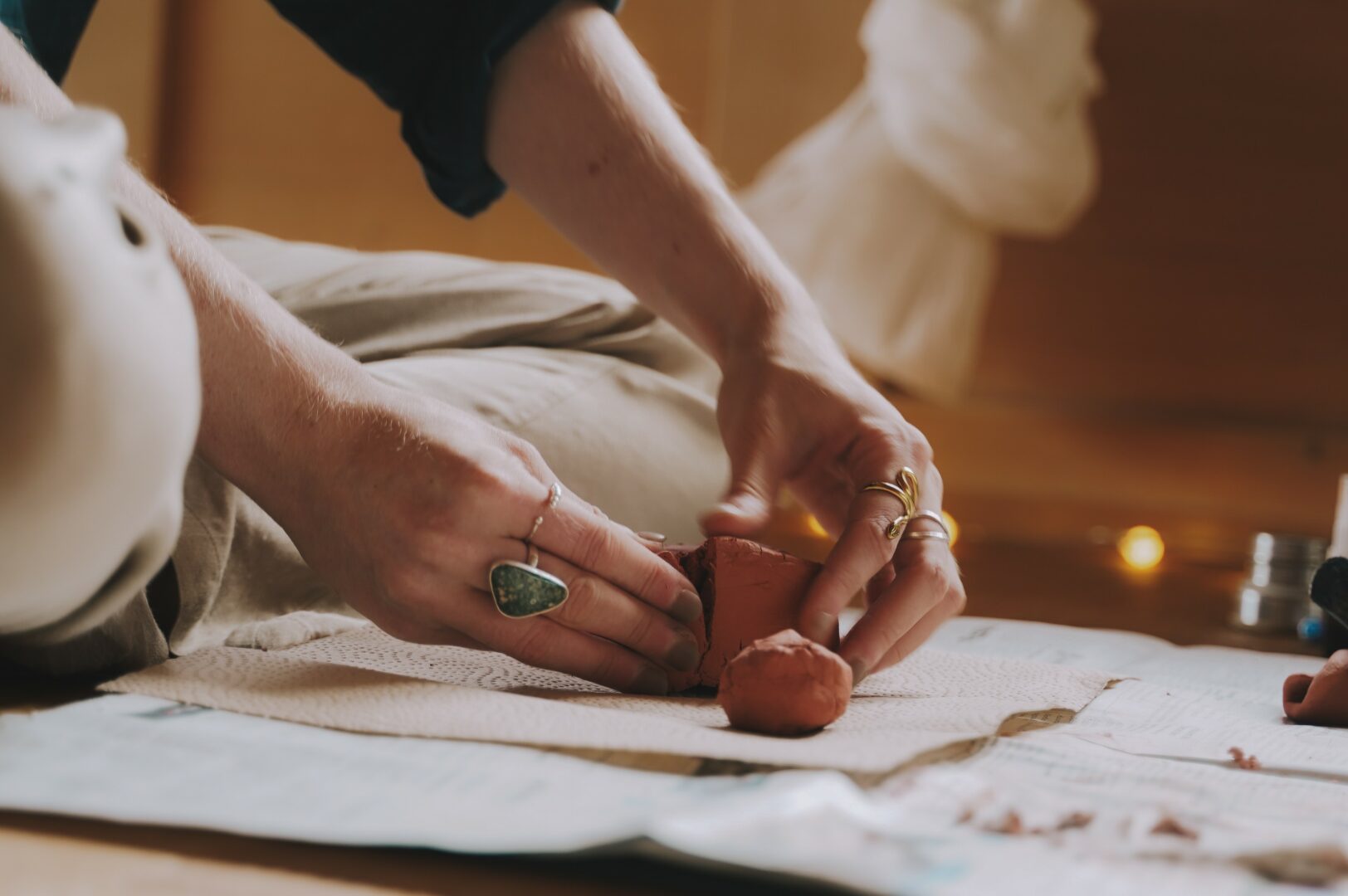
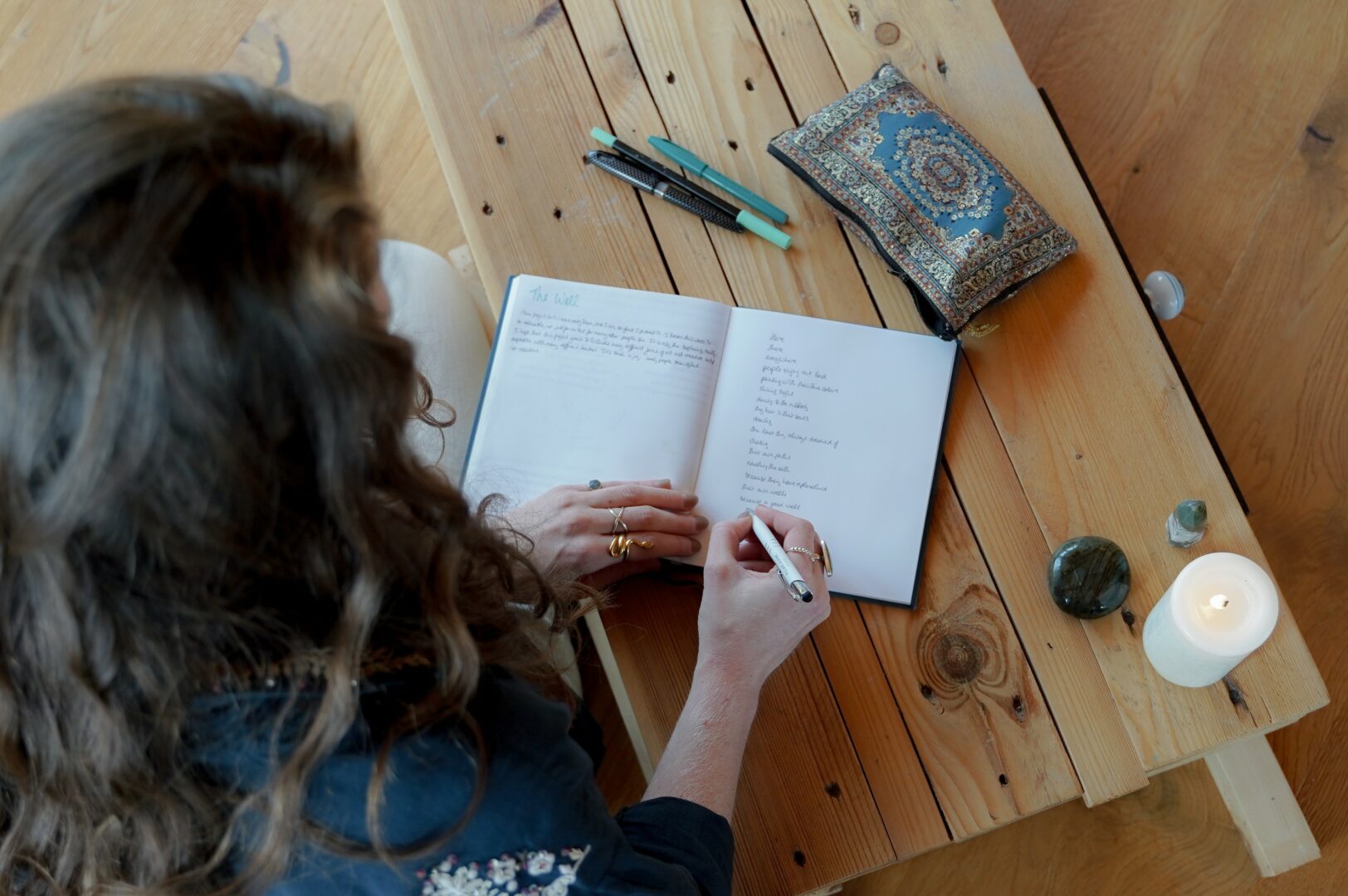
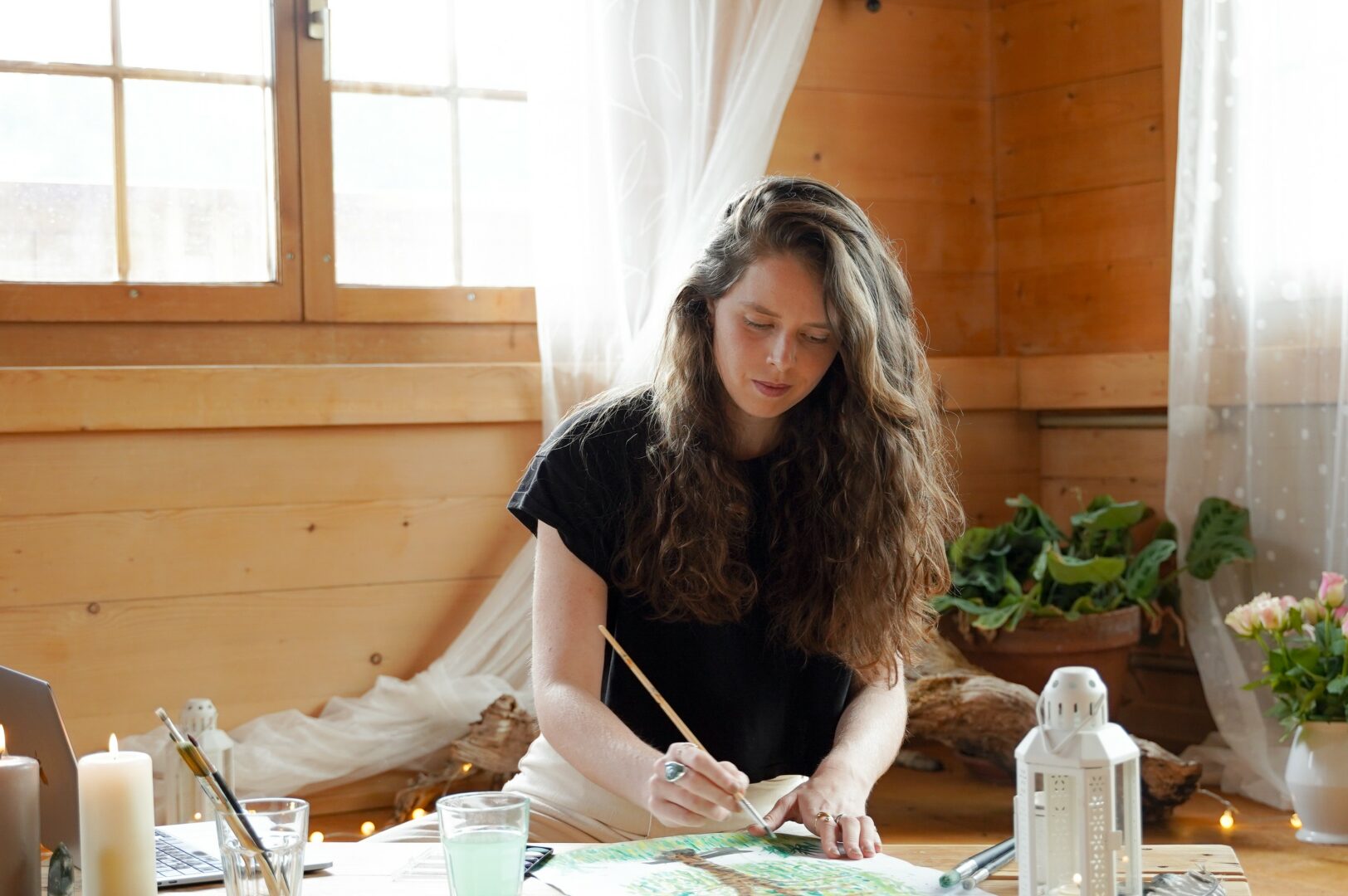
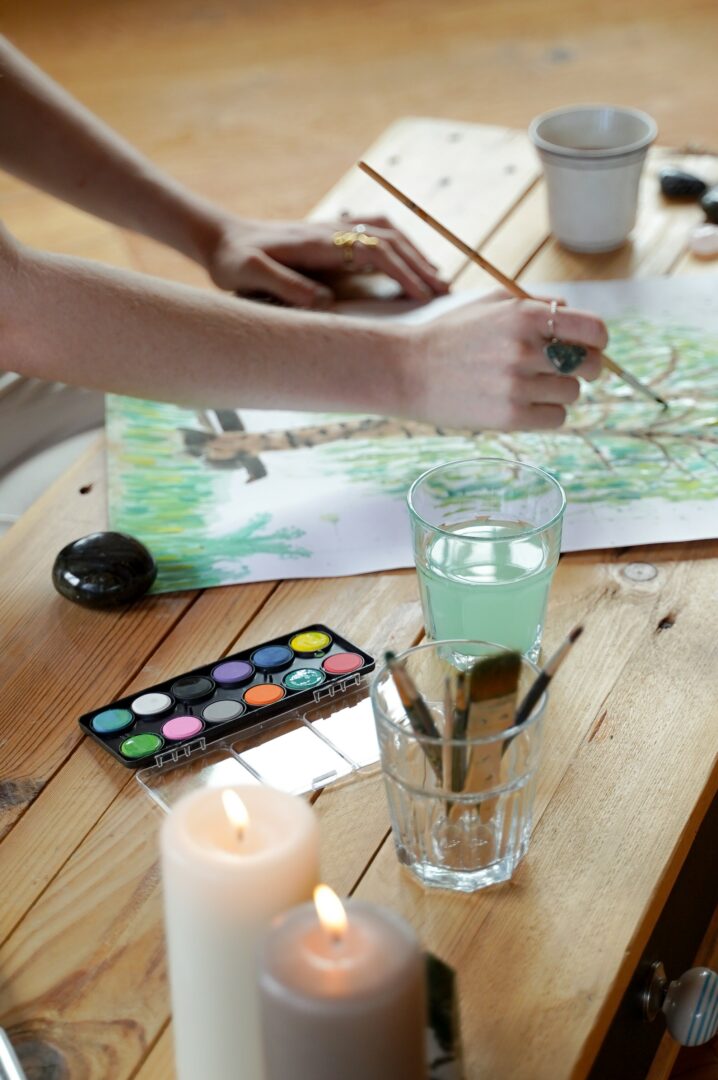
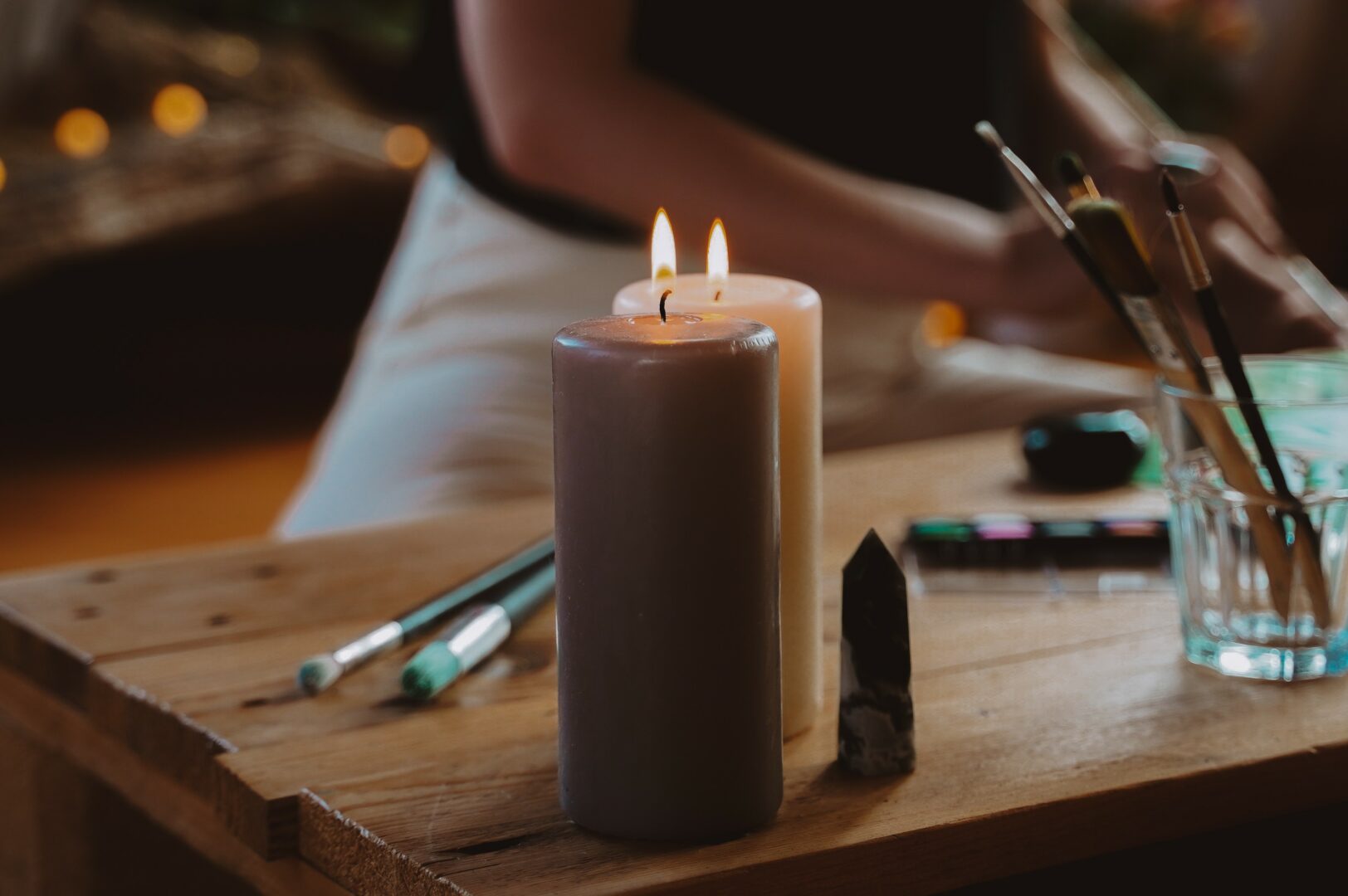
Image Credits
Schweizerischer Städteverband
Neutral Studio
Sherin Ledermann
so if you or someone you know deserves recognition please let us know here.

